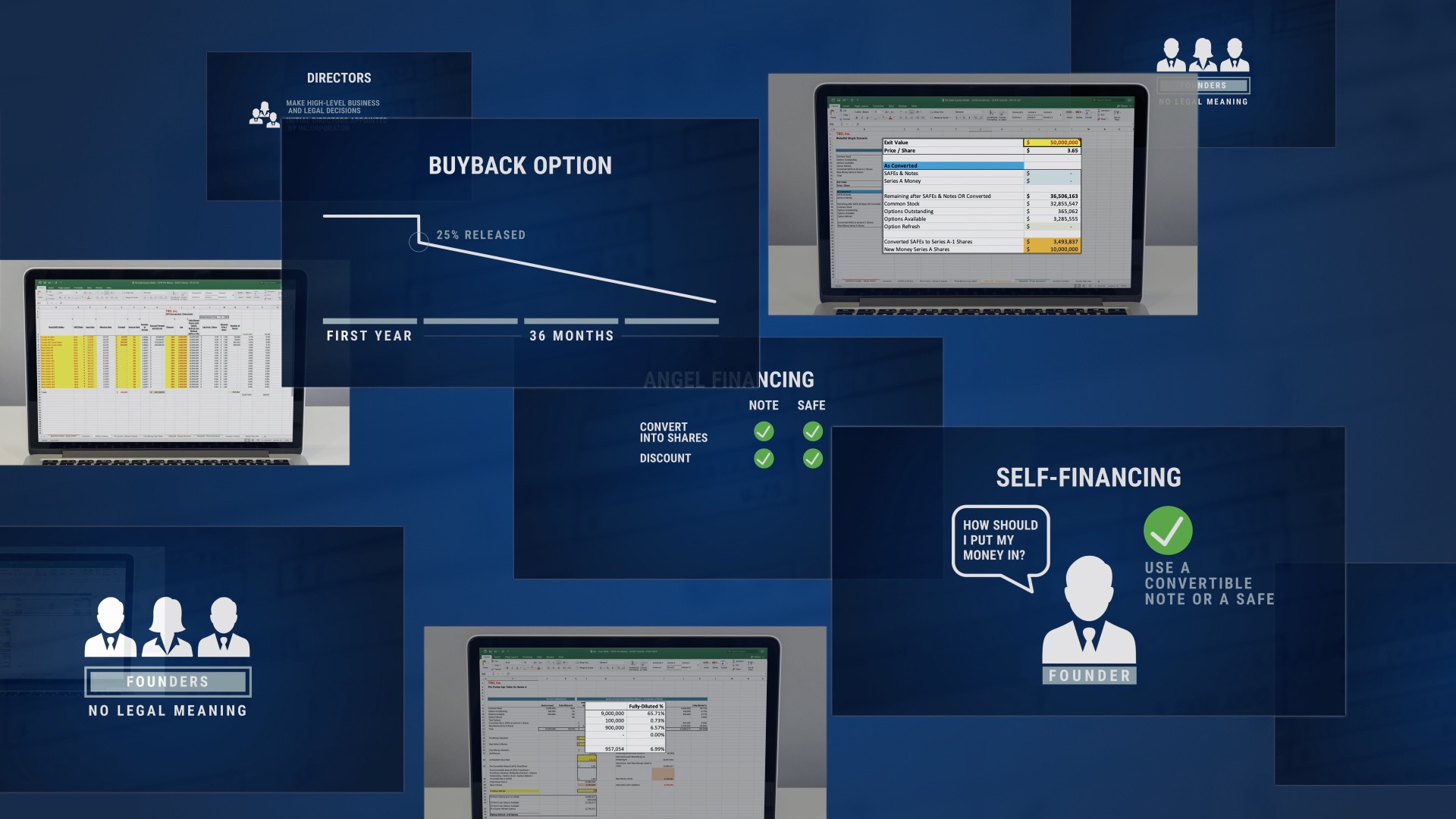After working as an employee for someone else, you want to take the leap and form your own company – great! But, understandably, you may not be ready to quit your day job and lose your steady stream of income. Before investing time and money into your startup, it is important to consider the interplay between your current job and the startup – namely, if there are things that could impact your ability to work for both (outside of not having more than 24 hours in a day).
What is an Employment Agreement and how does that affect my startup?
The typical employer is a company that hires you as an employee pursuant to some form of employment agreement. However, this is not the only situation where the considerations mentioned in this blog post will come into play. For example, PhD candidates can also be considered to be employed by the university – which may even have stricter rules when it comes to starting a business outside of your role in your program than a traditional employer.
As an employee (whether to a company or to a university), you will typically sign onto an agreement that outlines the terms of your employment. In the signed agreement, you will agree to be bound by certain policies of the employer. If you have no signed agreement, you will still need to consult the general policies of your employer. These agreements and policies (together, we will refer to them as the “Employment Policies”) are the crux of the question presented in this blog post – they have the information necessary to determine what you are able to build and work on outside of your employment.
There are a few key concepts to look out for in your Employment Policies that will directly impact your future startup:
Ensure the startup owns its intellectual property
Intellectual property (IP) is the driving force of a startup. It is usually the engine that makes your product or service unique, special, and valuable. Often products based on the IP become available to consumers – so it is important to make sure that your startup owns all IP related to the business. This is essential to the startup internally, and to investors. At the time of formation, you, as the founder, will assign all related IP to the startup through an agreement usually called a Confidentiality and Invention Assignment Agreement (or a Proprietary Information and Inventions Assignment Agreement), which ensures that everything you create moving forward, and possibly prior to the signed agreement, is owned by the startup.
That brings us back to your current Employment Policies. Just as you want your startup to own all IP related to your business, your current employer likely wants the same for itself.
Intellectual property and ownership generally
The starting point is to understand what IP is and the general rules of IP ownership. IP is typically divided up into different classes such as patents, copyrights, trademarks, trade secrets – which we have outlined in more detail in a previous blog post.
Generally speaking, IP is owned by the creator, however, in the Employment Policies (or any contractor or advisor agreement) there is typically language stating that any IP prepared pursuant to that contract is a work for hire. Under the work for hire doctrine, your employer (or the company that commissioned the work) will own any such IP as opposed to the creator themselves. In the event that the IP cannot be transferred under the work for hire doctrine, there is typically language assigning the IP to the company or giving the company a license with a right to use the IP.
Intellectual property and ownership in employment policies
Now, let’s turn to how IP is handled under your Employment Policies, beginning with the definition of IP. If the definition is narrowly tailored to the specific industry of your current employment, and your startup will not intersect in that industry, that can give you some comfort knowing you likely will not be in violation of any IP provisions of the Employment Policies.
If, however, the definition of IP is broad or your startup’s business could be considered a competitor in the same space, the next step is to see how the Employment Policies handle ownership of the IP. The first question is to determine whether your Employment Policies include work for hire language (the answer is most likely yes). Did you carve out what you created from IP being assigned to your employer? If so, you are free to use that IP since you retained ownership.
If, however, there are no carve outs (maybe because you may not have yet created the IP for your startup before signing the Employment Policies) – it is important to determine if your employer owns the startup IP you: (1) have created since beginning work for your employer or (2) will create while building your startup. It is helpful to note that some states offer protection for employees who create IP outside of work hours and without the use of employer resources. If your current employer owns (or will own) the very thing you are planning to build your company around, it can become problematic – both with your current employer and with growing and financing your startup.
Because of the nuances and implications involved, we recommend consulting with an attorney regarding IP ownership. This issue is especially important as lack of proper IP ownership will often surface during a Series Seed or Series A financing round with venture capitalists, and may affect your company’s ability to raise money or close the deal.
Restrictions on outside activities and conflicts of interest when creating a startup
The Employment Policies may also restrict your ability to be involved in outside activities or side projects. These generally are tied to working for or being involved with a competitor, or participating in activities that will create a conflict of interest with the company or materially interfere with your ability to perform your job.
Involvement with a competitor, depending on the Employment Policy, may mean directly working for such a competitor as an employee (which founders technically are in the startup – as described in more detail here), but sometimes can be as simple as holding stock in another company or serving as an adviser, consultant, or director.
Some Employment Policies will simply require prior approval before engaging in such activities, while others will view violation as grounds for termination. The impact of these policy violations can result in being fired from your current job, but should not have an effect on the startup per se. However, if you are planning to rely on the cash flow from your current employment to fund the startup, this consideration can become an important one.
Final thoughts on launching a startup while still employed
Although there may be other important considerations before creating a startup while currently employed,the items outlined above are a good starting point. Although not a legal issue, you also may want to consider how your treatment of the above considerations will be perceived by your current employer. The business world ends up being a small one, so maintaining a good relationship and not burning bridges is important, especially when wading into nuanced areas.
O&A, P.C., can help startups with founders who work other jobs
O&A, P.C., is experienced counsel who has helped founders navigate starting a new company while still working at another.
O&A is an elite team of attorneys led by founder Dan Offner that is committed to helping clients achieve their objectives — efficiently and effectively. The firm represents some of the biggest companies in technology and interactive entertainment, as well as some of the world’s most innovative entrepreneurs and emerging growth companies. For more information, please visit https://oandapc.com.
O&A’s StartupProgram.com (SUP) is designed to support entrepreneurial startups, offering complete company formation services delivered through an efficient platform coupled with an exclusive e-learning curriculum designed for founders. SUP gets startups up and running at a much lower cost than working with a big law firm – and without the risks of using do-it-yourself legal alternative websites. Visit SUP to learn more or book a demo of the service today.







